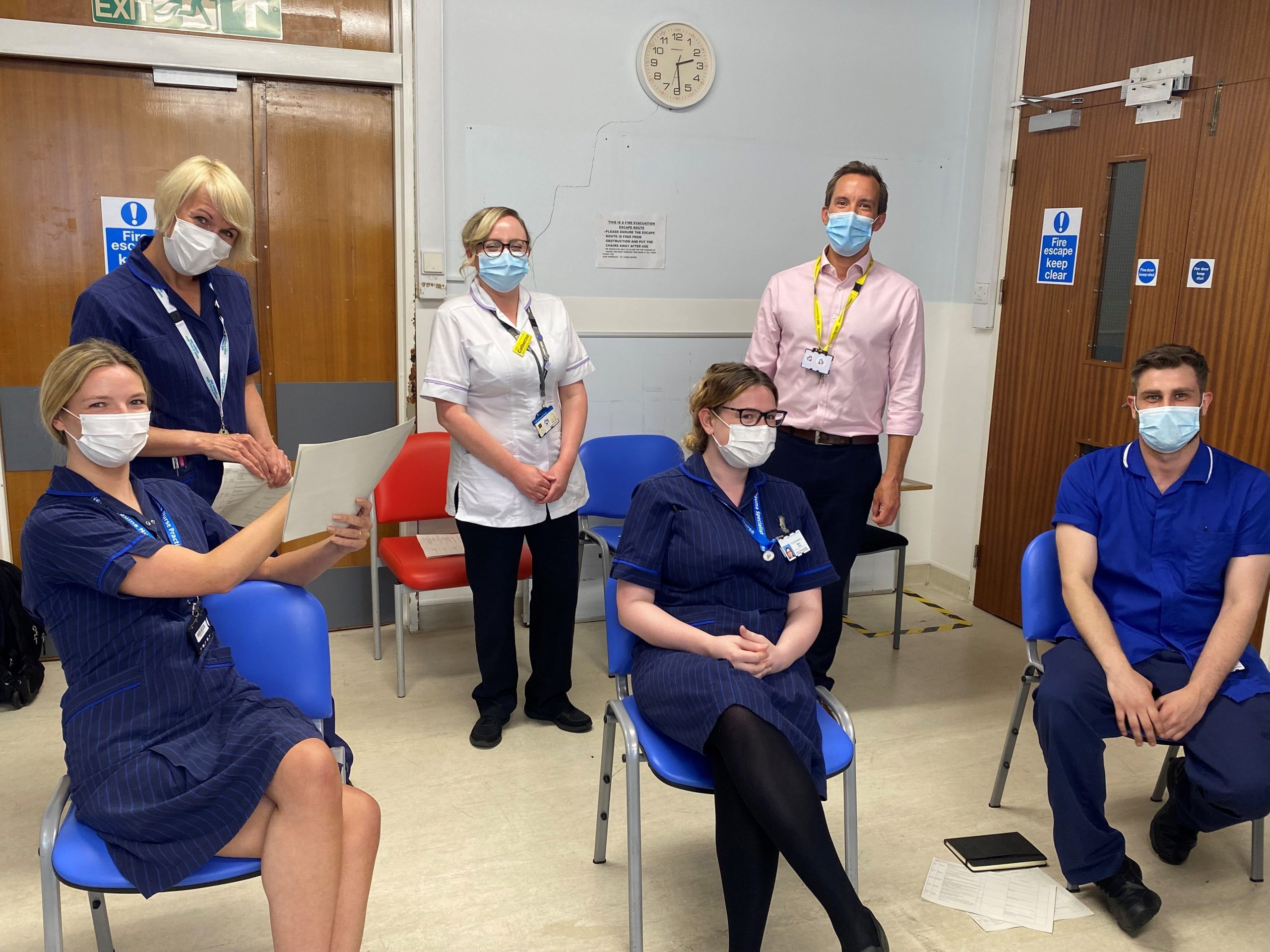
June 17, 2022, by brzam5
Rehabilitation Matters: Neurosurgery and the National Rehabilitation Centre
Rehabilitation Matters is a series of stories and perspectives from people who care about effective clinical rehabilitation and the benefits it provides. Here, Alex Leggate, Consultant Neurosurgeon and Neuro-trauma Lead for the East Midlands, explains how the National Rehabilitation Centre presents an opportunity to be faster, more effective and more successful with treatments for complex brain injury.
Sadly, the number of people who get back to full functionality following a significant head injury is very small. Even those without such significant head injuries can suffer long term physical, psychological and emotional complications. So for those of us working in neuro surgery, it’s vital that we do everything we can to get these patients to a point where they are able to function well in society and have the best possible quality of life.
I know from experience that there are two factors that make the biggest difference here: starting the rehabilitation process as early as possible and taking a multidisciplinary team (MDT) approach.
Here in Nottingham, the development of the National Rehabilitation Centre (NRC) as one of the ‘agile’ schemes in the Government’s New Hospital Programme provides an exciting opportunity for us to really embed both into clinical practice.
The ‘window’ for neuro rehabilitation is the first two years following injury. We therefore need to be engaging brain injury patients with the rehabilitation process from the moment they are at a level of consciousness that enables them to do so – and sometimes even before.
At Nottingham University Hospitals (NUH) NHS Trust, home to the East Midlands Major Trauma Centre, we have been doing a lot of work to build strong relationships between neurosurgery, critical care, major trauma and therapy and rehabilitation services. The main benefit is to enable an early, effective and holistic assessment of our patients’ rehabilitation capacity and needs by those with the appropriate skill set. We meet in the Neuro-Trauma MDT on a weekly basis to discuss patients both within NUH and those managed peripherally.
This MDT approach ensures that we engage rehabilitation services at the earliest available opportunity. We engage therapists even when patients may still be sedated on the Intensive Care Unit (ICU) to try and minimise spasticity, as that can quickly become yet another hurdle they have to overcome on their recovery journey.
Despite NICE assessing neuro-rehabilitation beds as some of the most economically beneficial beds in the NHS, there is a national shortage of them, and the NRC will be an important step towards addressing this deficit.
Our vision is for it to be the first of a network of regional centres across the country, each able to offer high levels of rehabilitation expertise, and able to receive patients from local neurosciences centres. Regional MDTs would co-ordinate with peripheral hospitals to ensure that these rehabilitation beds were used optimally by the patients who would benefit from them the most.
Clear and established pathways from initial hospital admission, through a patient’s acute neurosurgical care to the specialist rehabilitation centre would also allow an individual’s rehabilitation potential to be maximised at each stage. Having specialist rehabilitation centres used in this way would also serve to free up acute hospital beds for other patients, while offering patients the intensive rehabilitation input they need from a range of professionals but which could not be delivered as effectively on an NHS acute hospital ward or in the community.
Clearly the complexities of the brain mean that rehabilitation for neuro patients can often take significantly longer than for patients with purely physical injuries. It’s difficult and demanding for both the patient, their loved ones and all those involved in delivering the treatment. But the potential rewards are substantial.
I’m passionate about ensuring that the inpatient assessment and initial rehabilitation we carry out in hospital provides the best first step on the rehabilitation journey.
I’m delighted that, in the future, so many of my patients will be able to take advantage of the NRC’s state-of-the-art facilities and get the most out of their rehabilitation.
Mr Alex Leggate – Consultant Neurosurgeon and Neuro-trauma Lead for the East Midlands
No comments yet, fill out a comment to be the first

Leave a Reply